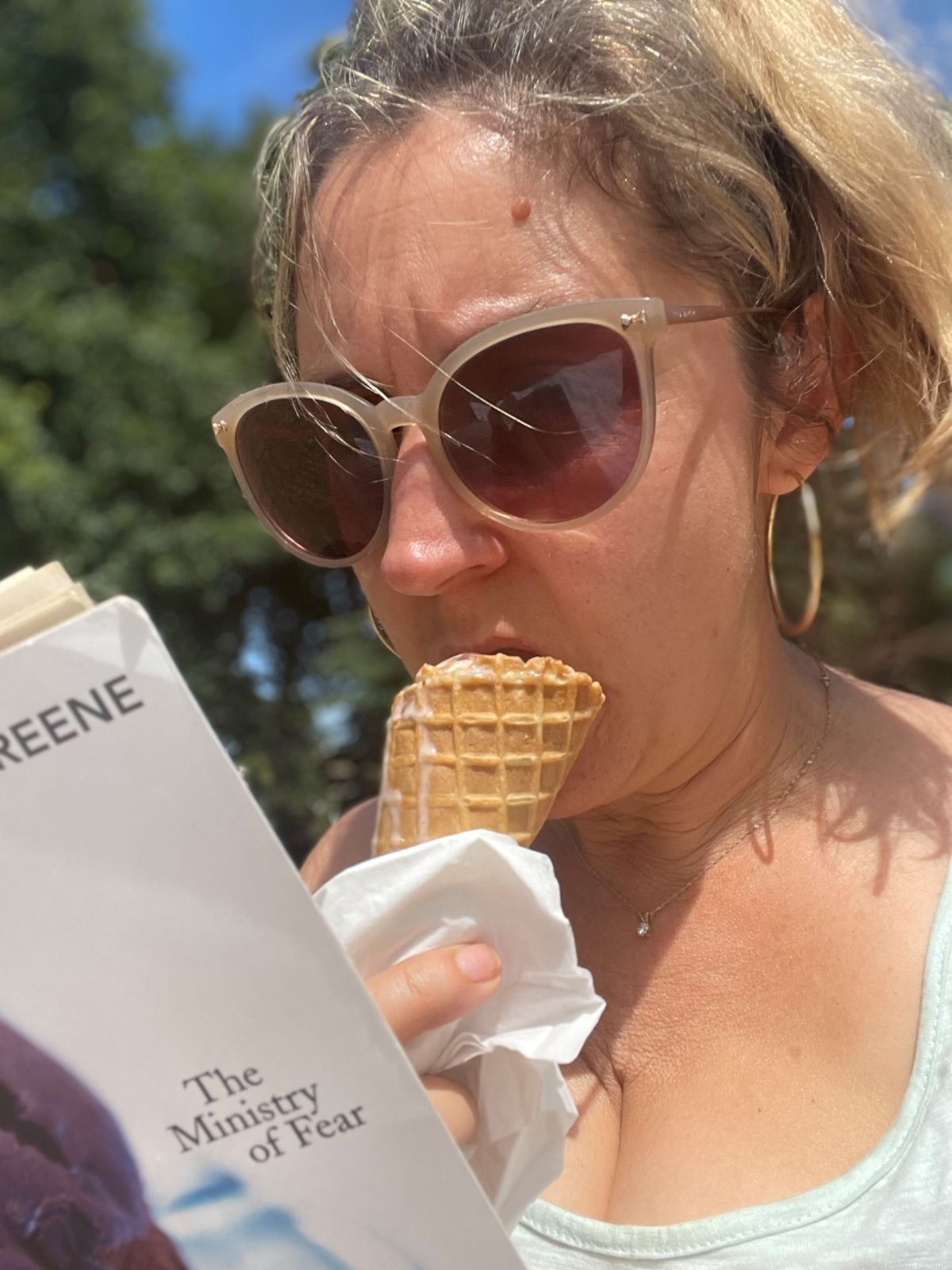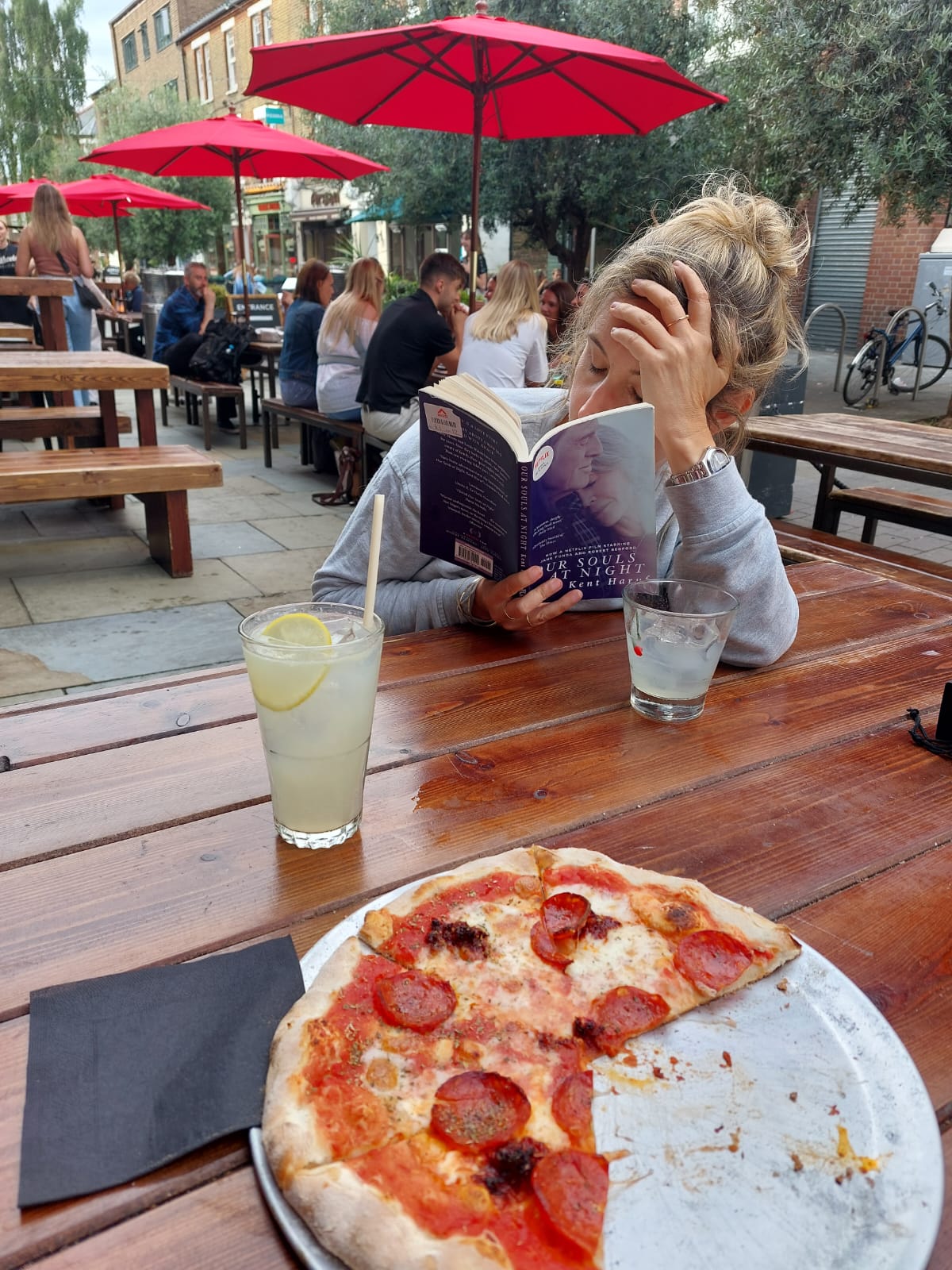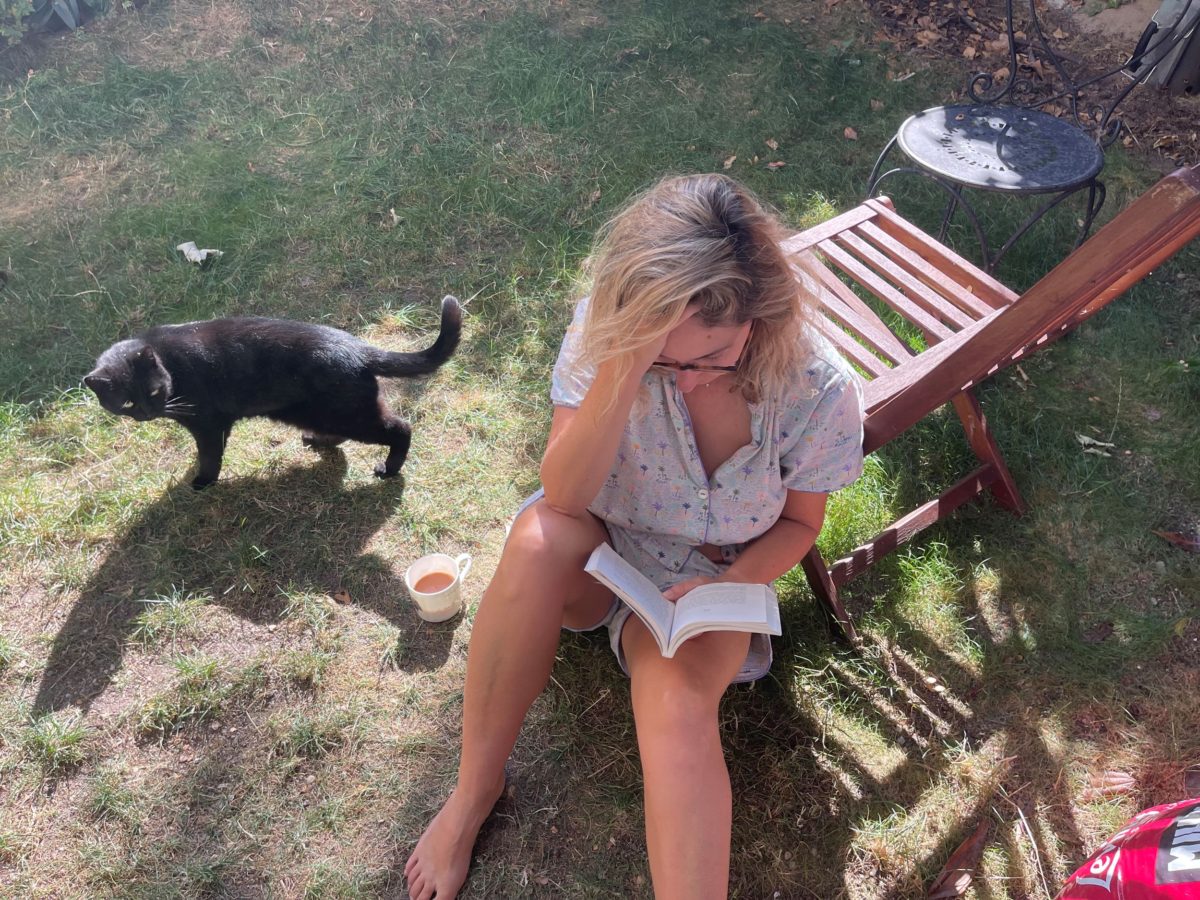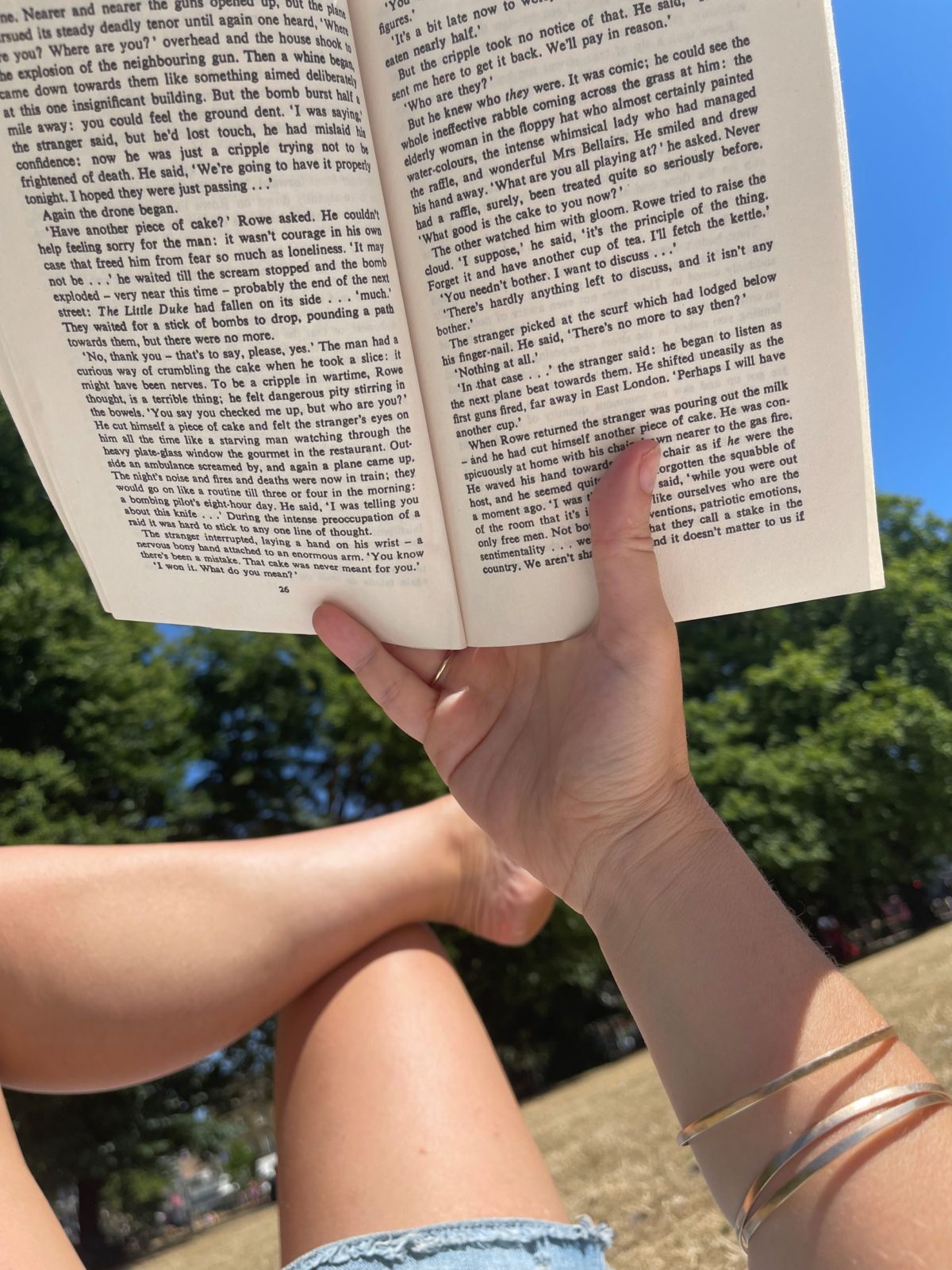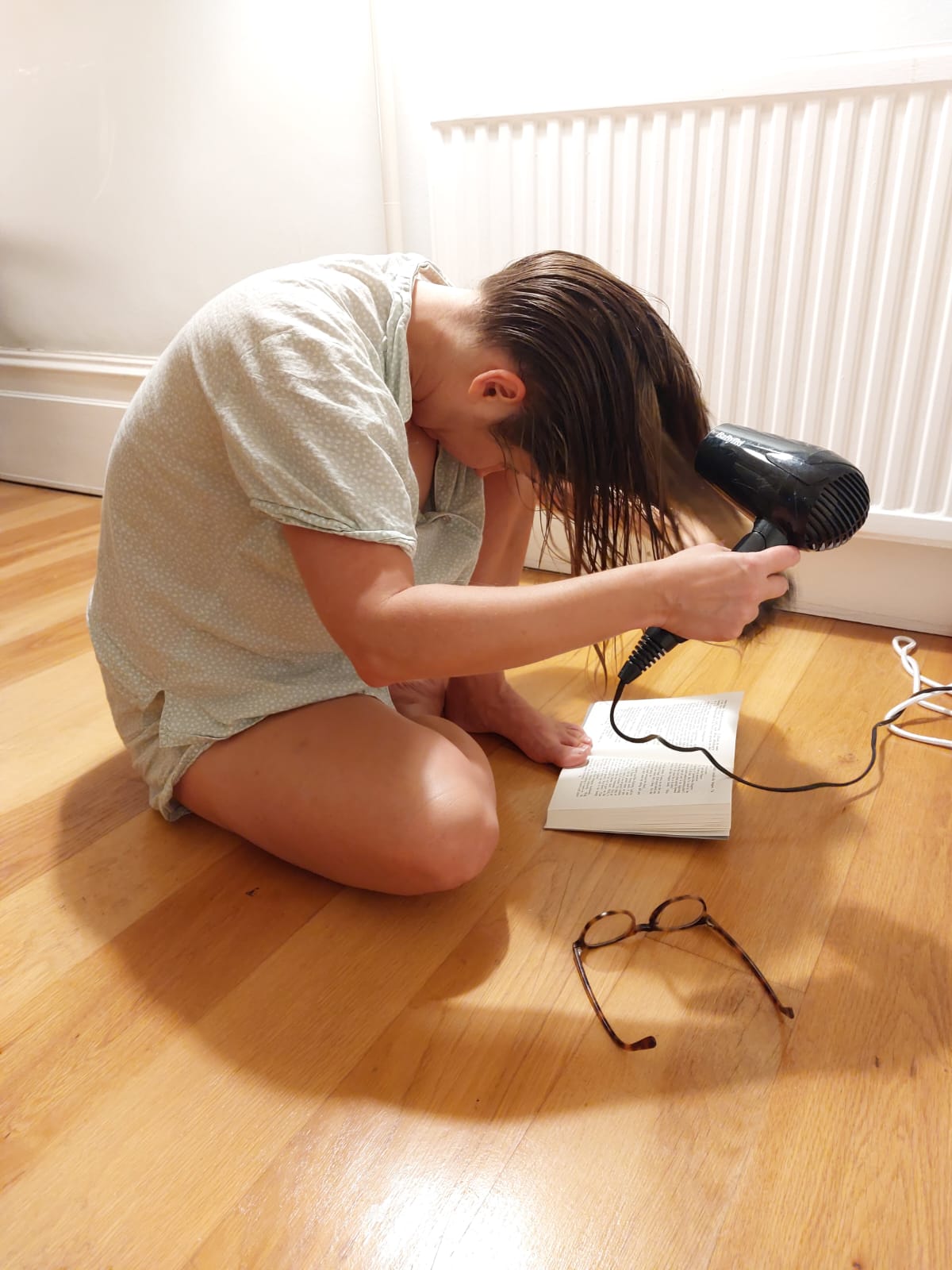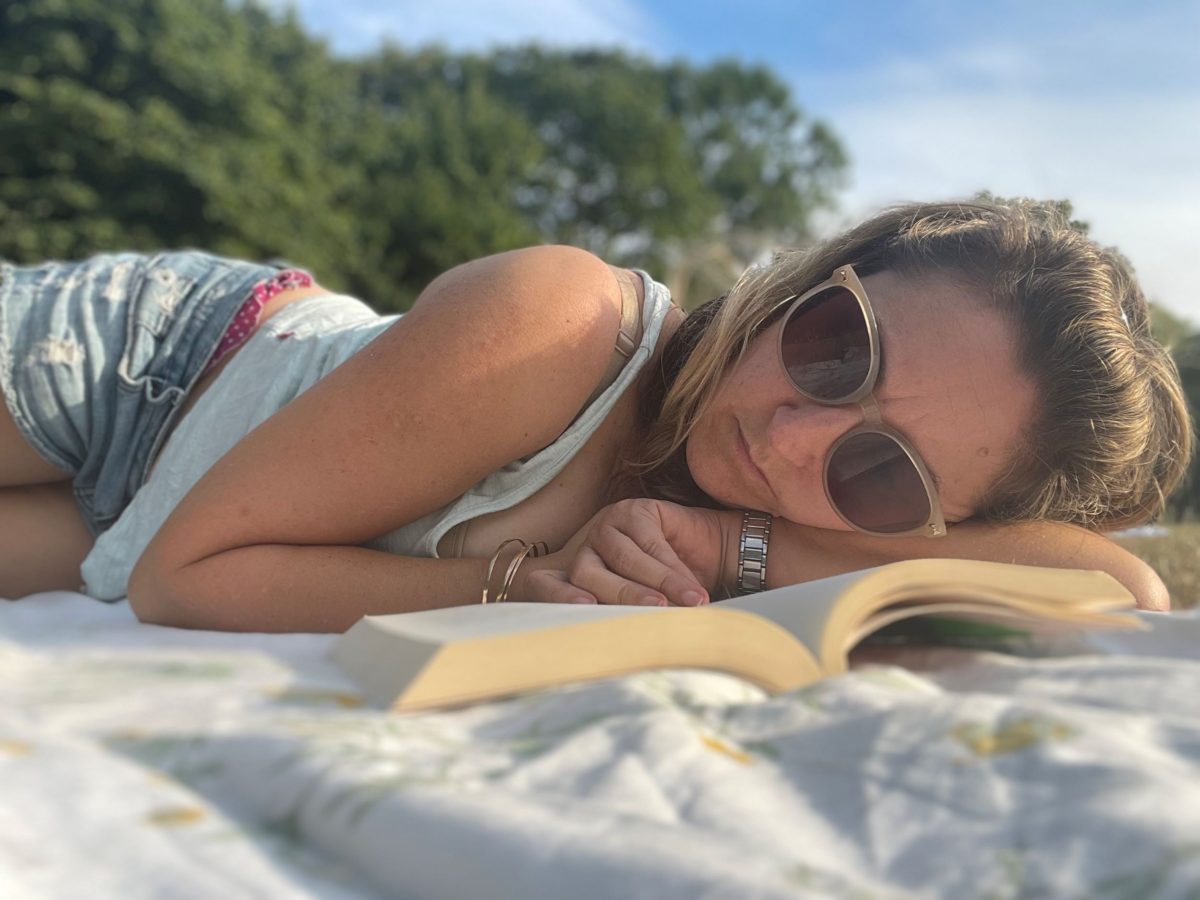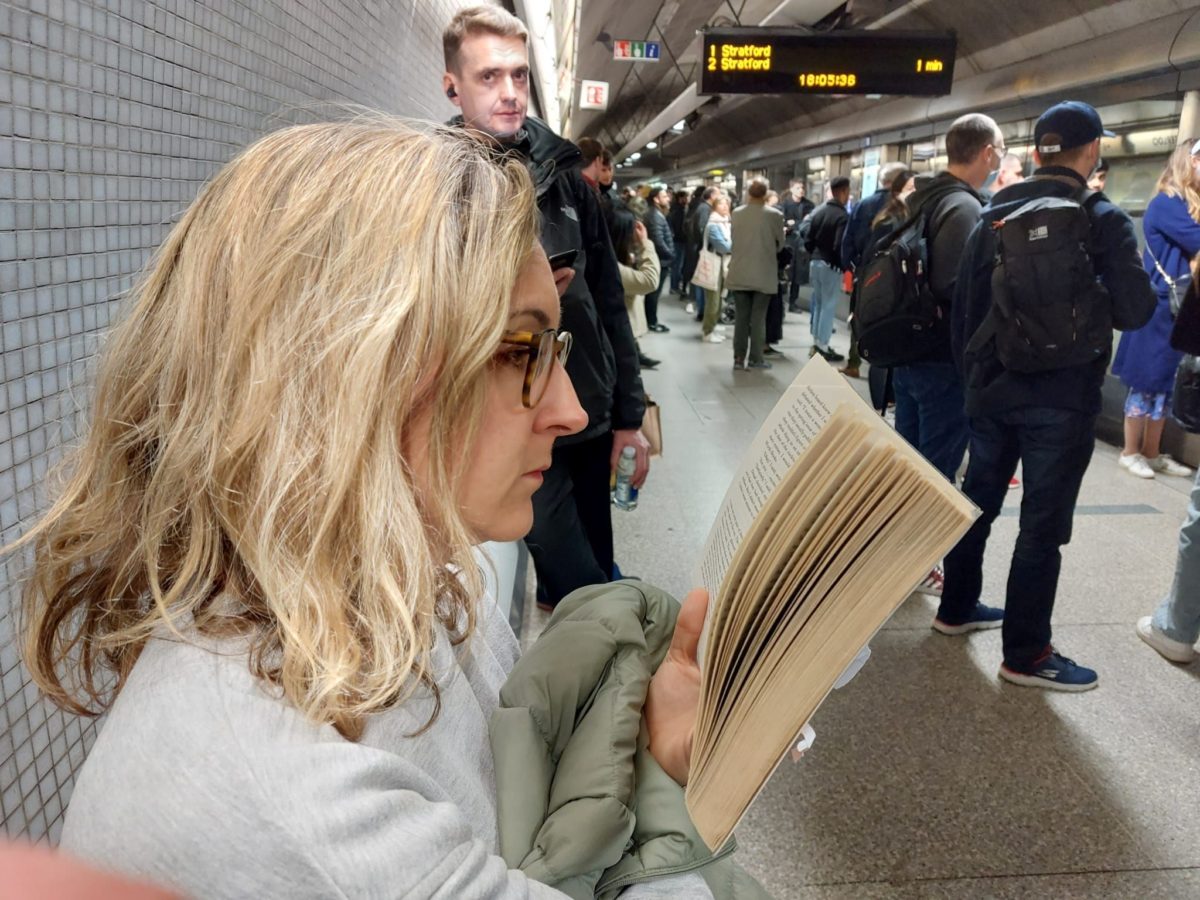I am passionately fond of Graham Greene. I have in fact been rationing his books to myself, so I don’t run through them too quick in my lifetime. I picked this one up at random, and was excited, but had to stop reading it part way through. This was not because it was so bad – many parts of it were very good, because Greene can’t help to be good – but because it was not as good as he can be, and I did not want my admiration for him spoiled. The story got a bit silly – I think he was trying for a spy novel? But I’ll never know because I stopped before I could find out.
Greene lived for a long time in Clapham in London, where I also live. He also lived a good amount of time in Freetown in Sierra Leone, as I did. The overlap of people who know both must be pretty small. I enjoyed his HEART OF THE MATTER, a great novel of Freetown, and this one was very much a Clapham book. I enjoyed the insight into the war in particular:
London was no longer one great city: it was a collection of small towns . . . Knightsbridge and Sloane St were not at war, but Chelsea was, and Battersea was in the front line . . In Clapham where day raids were frequent there was a hunted look which was absent from Westminster, where the night raids were heavier but the shelters were better

